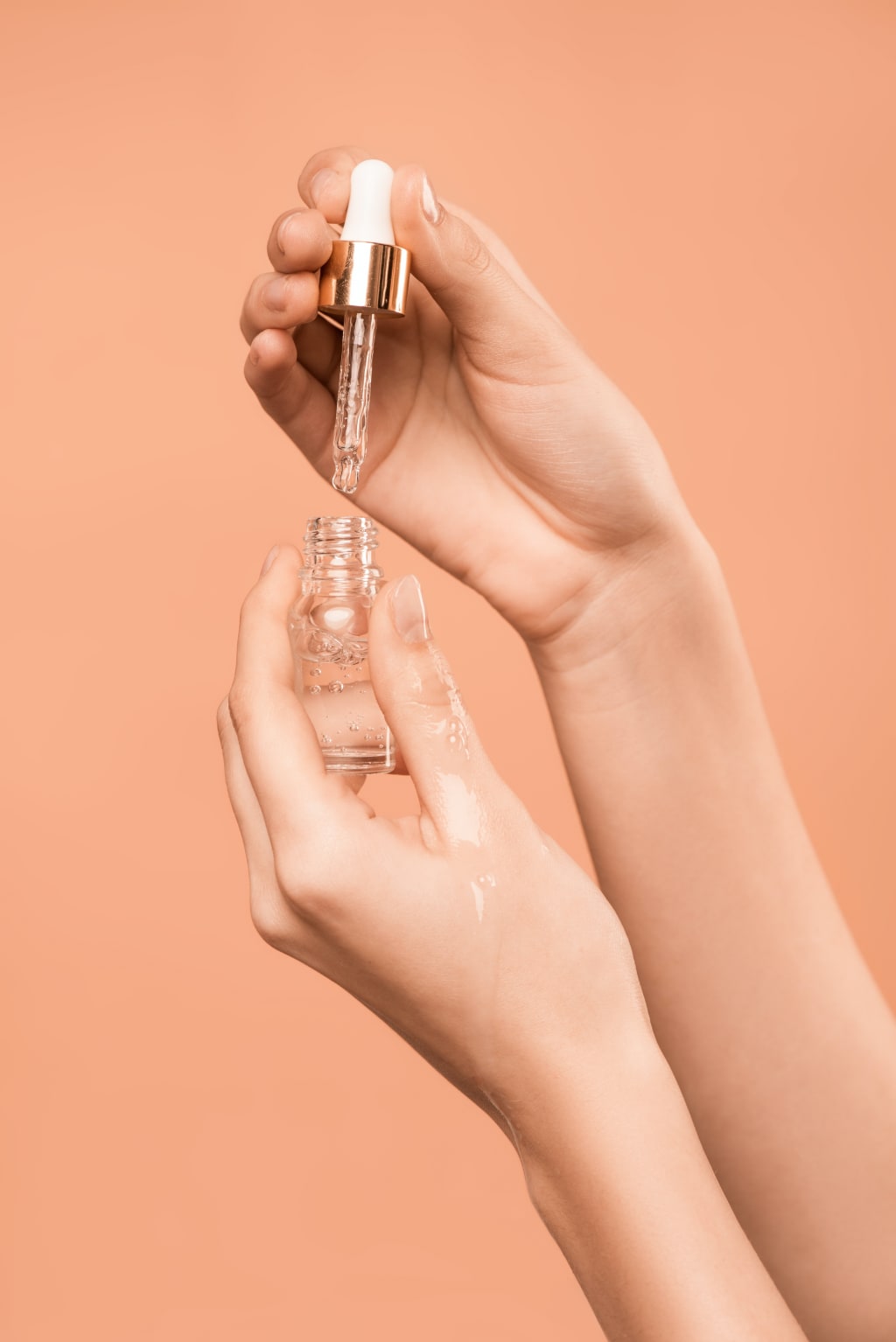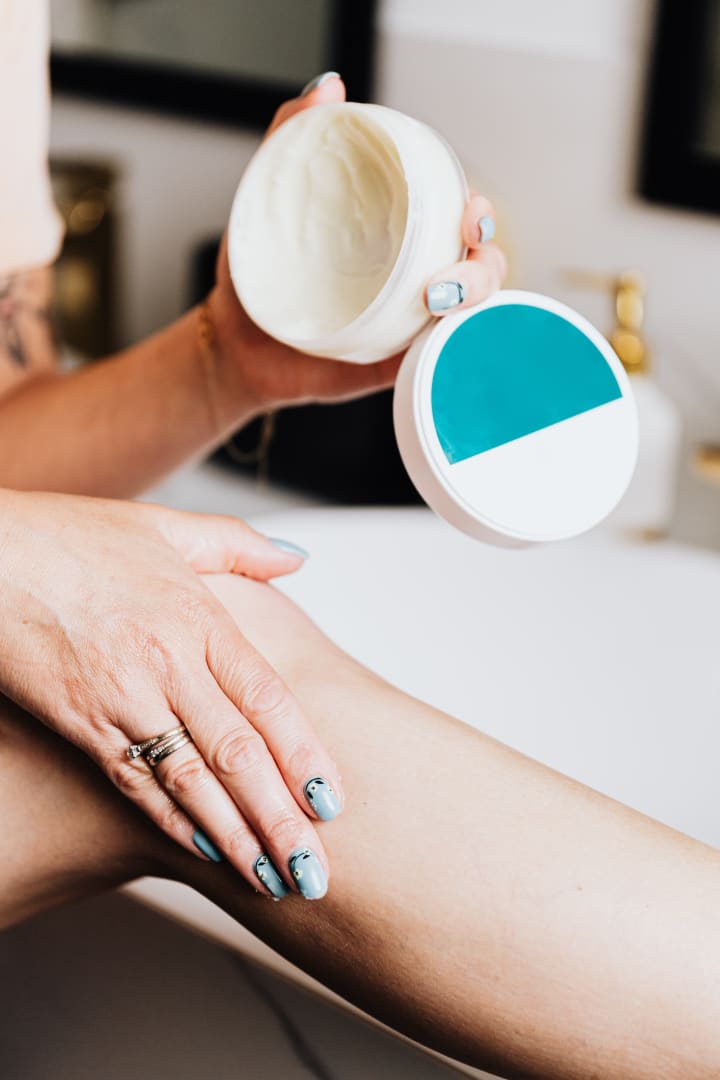The Magic Of Moisturizing: Tips For Hydrated and Glowing Skin
Skin care

Having good skin is important to a lot of people. The skin is the largest organ in the body and is always open to the outside world. Moisturizing is one of the most important parts of a skincare practice. Moisturizing keeps the skin moist, soft, and flexible. We’ll talk about the magic of moisturizing and how to keep your skin hydrated and glowing in this piece.
No matter if your skin is oily, dry, or a mix of both, you need to moisturize it. It keeps the skin from getting dry, flaky, and irritated. When the face gets enough water, it looks healthier and brighter. Moisturizing can help lessen the look of fine lines and wrinkles in addition to keeping the skin moist. With so many benefits, it’s no wonder that moisturizing is such an important part of any skincare practice.
The Importance of Skin Hydration
For healthy, glowing skin, it’s important to keep the face hydrated. If your skin isn’t getting enough water, it can get dry, flaky, and even itchy. Dehydrated skin can also cause fine lines, wrinkles, and early aging. So, it is very important to keep the face moist and hydrated.
The skin is the body’s biggest organ, and it has many layers. The epidermis, which is the top layer of skin, protects the skin from things like pollution, UV rays, and hard weather. The epidermis also helps the skin hold onto water and stay fresh.
When the skin is well-hydrated, it is stronger and better able to protect itself from the outside world. Skin that is well hydrated also looks fuller, and younger, and has a natural glow. On the other hand, skin that isn’t getting enough water can look dull and dead and cause breakouts.
It’s important to use moisturizers that are right for your skin type to keep your face hydrated. Moisturizers help keep water in the skin and stop it from losing water. They also make a shield against things in the outside world that can hurt the skin.
In addition to using creams, it is important to drink a lot of water and eat a healthy diet. Water helps the body stay hydrated from the inside out, and a diet full of fruits and veggies gives the skin the vitamins and nutrients it needs to stay healthy.
Overall, keeping your skin hydrated is the most important thing you can do to keep it healthy and beautiful. Using the right creams and making healthy choices can make your skin look bright and young.
Understanding the Skin’s Moisture Barrier
Role of the Moisture Barrier
The moisture layer is an important part of the skin that is healthy and well-hydrated. It is a covering layer that keeps the skin from losing water and helps keep it moist. Lipids, which are natural oils made by the skin, make up the moisture layer. These lipids make a protective layer on the skin’s surface that keeps water from escaping and keeps the skin moist.
When the skin’s moisture layer is broken, it gets dry, flaky, and itchy. This can cause eczema, psoriasis, and acne, among other skin problems. So, it’s important to keep the moisture layer in good shape and keep the skin moist.
Factors Affecting the Moisture Barrier
There are several factors that can affect the moisture barrier and lead to dry skin. These include:
Environmental factors: Exposure to harsh weather conditions, such as cold, dry air and wind, can strip the skin of its natural oils and lead to dryness.
Age: As we age, the skin’s natural ability to produce lipids decreases, which can lead to a weaker moisture barrier and drier skin.
Harsh skincare products: Using skincare products that contain harsh chemicals, such as sulfates and alcohol, can strip the skin of its natural oils and damage the moisture barrier.
Genetics: Some people are naturally prone to having a weaker moisture barrier, which can lead to dry skin.
To maintain a healthy moisture barrier, it is important to use gentle skincare products that do not contain harsh chemicals. It is also important to protect the skin from harsh weather conditions and to moisturize regularly to keep the skin hydrated.
Different Types of Moisturizers
Moisturizers are skincare items that help keep the skin hydrated and safe. They come in many different shapes and sizes, and each one has its own perks. In this part, we’ll talk about the different kinds of creams and what they do for your skin.
Creams and Lotions
Most moisturizers come in the form of creams and oils. They are made of water and have emollients that help keep the skin moist. Lotions are thinner and don’t keep your skin as hydrated as creams do. They are great for people whose skin is normal to dry.
Creams and creams are easy to use and can be put on both the face and the rest of the body. They can also be made in different ways, like without oil or scent, or for people with sensitive skin.
Oils
Oils are another kind of lotion that can help keep the skin hydrated and safe. They are great for people whose skin is dry or old. Oils can be used alone or added to creams and lotions to make them more moisturizing.
There are many different kinds of oils, such as coconut oil, jojoba oil, and argan oil. Each oil has different benefits, so it’s important to choose the right one for your skin type.
Serums
Serums are lightweight creams that have a lot of active ingredients in a small amount. They are great for people whose skin is oily or prone to acne. Serums are quickly absorbed by the skin and can be used alone or added to creams and lotions to make them more moisturizing.
There are different kinds of serums, some of which contain vitamin C, hyaluronic acid, and retinol. It’s important to choose the right serum for your skin type because each one has its own benefits.
In conclusion, moisturizers are an important part of any skincare practice. They help keep the skin hydrated and protected, so it looks healthy and glows. People with normal to dry skin should use creams and lotions, while people with dry or old skin should use oils. People with sticky or acne-prone skin should use serums.

Choosing the Right Moisturizer
Moisturizing is an important part of any skincare practice, but it can be hard to figure out which moisturizer is best for your skin. There are so many choices that it can be hard to know where to start. In this section, we’ll talk about some things to think about when picking the best moisturizer for you.
Skin Type Considerations
The first step in choosing a moisturizer is to consider your skin type. Different skin types have different needs, and using the wrong moisturizer can lead to skin irritation or breakouts. Here are some things to keep in mind:
For dry skin, look for a moisturizer that contains ingredients like hyaluronic acid, glycerin, or ceramides. These ingredients help to hydrate the skin and lock in moisture.
For oily or acne-prone skin, look for a lightweight, oil-free moisturizer. Avoid heavy creams or products that contain comedogenic ingredients, which can clog pores and lead to breakouts.
For sensitive skin, look for a moisturizer that is fragrance-free and hypoallergenic. Avoid products that contain potential irritants like alcohol, fragrances, or dyes.
Ingredient Analysis
Once you have determined your skin type, the next step is to analyze the ingredients in the moisturizer. Here are some key ingredients to look for:
Hyaluronic acid: This ingredient helps to hydrate the skin and retain moisture, making it an excellent choice for dry skin.
Ceramides: Ceramides help to strengthen the skin’s barrier and prevent moisture loss, making it an excellent choice for those with dry or sensitive skin.
Glycerin: Glycerin is a humectant that helps to attract and retain moisture in the skin.
Antioxidants: Antioxidants like vitamins C and E help to protect the skin from environmental stressors like pollution and UV rays.
On the other hand, here are some ingredients to avoid:
Fragrances: Fragrances can be irritating to the skin, especially for those with sensitive skin.
Alcohol: Alcohol can be drying to the skin and can strip the skin of its natural oils.
Comedogenic ingredients: Comedogenic ingredients like coconut oil or cocoa butter can clog pores and lead to breakouts.
In conclusion, choosing the right moisturizer requires careful consideration of your skin type and the ingredients in the product. By keeping these factors in mind, you can find a moisturizer that works best for you and helps to keep your skin hydrated and glowing.
The Correct Way to Apply Moisturizer
Step-by-Step Guide
When it comes to moisturizing, the way you apply your moisturizer is just as important as the moisturizer itself. Here is a step-by-step guide to help you apply your moisturizer correctly:
Start with a clean face: Before applying moisturizer, make sure your face is clean and dry. Gently wash your face with a mild cleanser and pat dry with a clean towel.
Take a small amount of moisturizer: Take a small amount of moisturizer, about the size of a dime, and warm it up in your hands by rubbing them together.
Apply the moisturizer: Apply the moisturizer to your face using gentle upward and outward strokes. Be sure to cover your entire face, including your forehead, nose, cheeks, and chin.
Don’t forget your neck: Many people forget to moisturize their neck, but it’s important to keep this area hydrated as well. Apply a small amount of moisturizer to your neck using upward strokes.
Let it absorb: Allow the moisturizer to absorb into your skin for a few minutes before applying any makeup or sunscreen.
Best Time to Apply
After you wash your face and before you put on makeup or sunscreen is the best time to put on lotion. This lets the lotion soak into your skin completely and keep it as hydrated as possible all day.
If your skin is dry, you might want to put lotion on twice a day, once in the morning and again before bed. This will help keep your skin moist and stop it from drying out and flaking.
In conclusion, it’s important to use moisturizer properly if you want your skin to stay hydrated and look healthy. By doing these simple things, you can keep your skin soft, smooth, and looking healthy.
Common Moisturizing Mistakes to Avoid
Every skincare procedure must include moisturizing. But a lot of people do things that make it harder for them to keep their faces hydrated and glowing. Here are some common things to avoid when moisturizing:
1. Not Applying Moisturizer to Damp Skin
When people moisturize, one of the most common mistakes they make is not putting the lotion on skin that is still damp. Moisturizers work by holding water in the skin, so putting them on dry skin can make it even drier. Make sure to put lotion on skin that is just a little bit damp to help lock in moisture.
2. Using Too Much Moisturizer
If you use too much lotion, it can actually hurt your skin. Even though you might think that putting on more lotion will make your skin more hydrated, it can actually block your pores and cause acne. Use about the size of a pea of lotion on your face, and use more or less on other parts of your body as needed.
3. Not Using the Right Type of Moisturizer for Your Skin Type
Different kinds of creams are best for different kinds of skin. If you use the wrong kind of lotion, your pores can get clogged, you can get pimples, and your skin can have other problems. If you have oily skin, look for a lotion that is light and doesn’t have oil in it. If your skin is dry, look for a lotion that is rich and moisturizing.
4. Skipping Sunscreen
Many moisturizers have sunscreen in them, but if yours doesn’t, make sure to put sunscreen on after your lotion. Damage from the sun can make your skin dry and cracked, and it can even cause skin cancer. Wear sunscreen every day, even on cloudy days, to protect your face.
5. Over-Exfoliating
Exfoliating is an important part of any skincare routine, but if you do it too often, your skin’s natural oils can be stripped away, which can make your skin dry. Only exfoliate your skin once or twice a week, and always use a moisturizer afterward to restore your skin’s moisture layer.
By not making these common mistakes when moisturizing, you can help your face stay hydrated, healthy, and glowing.
About the Creator
Abby blasius
I am a passionate content creator with a strong focus on health and wellness. While my educational background lies in a Bachelor of Accounting and Finance, it is my innate desire to help people feel good about themselves in mind, body&soul






Comments
There are no comments for this story
Be the first to respond and start the conversation.